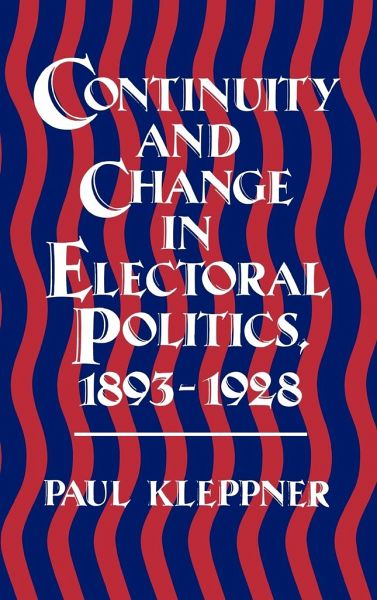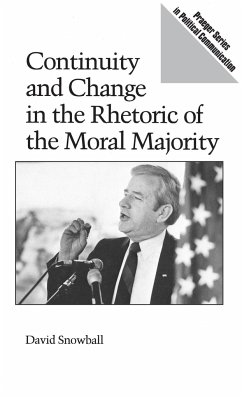
Continuity and Change in Electoral Politics, 1893-1928.
Versandkostenfrei!
Versandfertig in 1-2 Wochen
88,99 €
inkl. MwSt.

PAYBACK Punkte
44 °P sammeln!
Kleppner's study represents an attempt to move beyond the older voting studies by questioning their underlying assumptions and analyzing the changes that occurred at the beginning of the twentieth century. Rejecting the view that partisan identification is a nearly unchangeable psychological attachment, he argues that twentieth century voters were more likely to respond to short-term factors--fluctuations in the economy, charismatic candidiates, etc.--than their nineteenth century counterparts. This reexamination of long-held theories will provide new insight into assumptions about the links b...
Kleppner's study represents an attempt to move beyond the older voting studies by questioning their underlying assumptions and analyzing the changes that occurred at the beginning of the twentieth century. Rejecting the view that partisan identification is a nearly unchangeable psychological attachment, he argues that twentieth century voters were more likely to respond to short-term factors--fluctuations in the economy, charismatic candidiates, etc.--than their nineteenth century counterparts. This reexamination of long-held theories will provide new insight into assumptions about the links between cultural and ethnic values and party affiliation.














